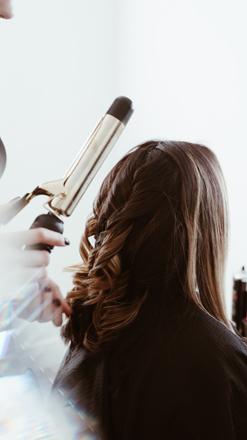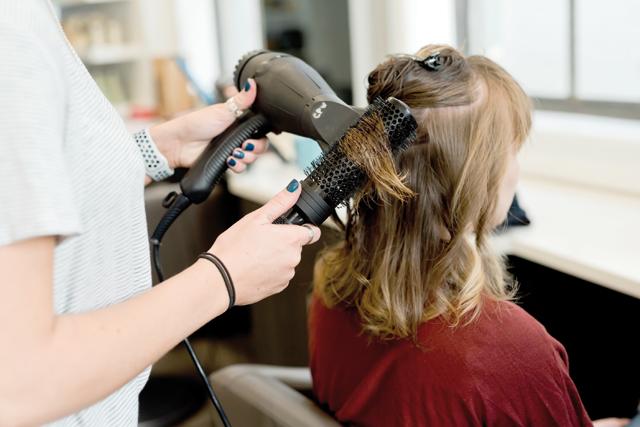You are here
Beauty sector workers decry ‘difficult working conditions’
By Batool Ghaith - May 12,2022 - Last updated at May 12,2022

Representative image (Photo courtesy of unsplash.com/Baylee Gramling)
AMMAN — The Beauty Salon Owners’ Association and the Self-employed and Service Workers’ Association have finalised an agreement to improve the working conditions of workers in the sector.
Khaled Abu Marjoub, president of the Self-employed and Service Workers’ Association, told The Jordan Times that the agreement, signed on Tuesday, will benefit 80,000 workers at a cost of JD300,000 annually.
Abu Marjoub noted that the agreement, to be implemented with the Ministry of Labour, takes into account “all violations against workers in the beauty sector” and that the “implementation will take time, but we hope that conditions improve soon”.
He stated that workers in beauty salons face “very difficult working conditions” in the absence of labour rights and the lack of decent work standards.
According to Abu Marjoub, workers in beauty salons are not included in social security and do not have health insurance, despite the categorisation of their profession as “dangerous”.
Beauty workers are prone to work injuries, such as herniated discs due to long working hours while they are standing, said Abu Marjoub.
Workers also often exceed the official eight work hours, without getting overtime pay, and often without receiving the minimum wage, in addition to working on official holidays, he added.
“These violations have been happening for a long time,” he said.
He stated that the pandemic negatively affected the beauty sector, pointing out that 13,000 workers lost their jobs during the pandemic.
“It has become common for self-employed workers in the beauty sector to practise the profession and depend on social media for promotion and advertising, due to the violations and problems they face in salons by employers,” Abu Marjoub added.
Self-employment helps them become self-reliant to establish private small projects, he said.
Abu Marjoub called on the Ministry of Labour to intensify supervision and inspection of facilities operating in the sector.
Ibrahim Alami, a self-employed beauty worker, told The Jordan Times that being self-employed is far “better and more respectful” than being employed in a salon.
“Working for long hours without receiving what we deserve is very demeaning. Working in salons is very challenging, which is why I decided to work as a freelancer after my experience in different salons,” he said.
Alami emphasised that the beauty sector is “very challenging and competitive” and employers are “very disrespectful” of their employees’ talents. “Lots of employers take credit for others’ work, which is inappropriate,” he added.
Alami noted that being excluded from social security is “unfair”. “It is unfortunate to see our talent and work unappreciated, whether by employers, the government or even the people,” he said.
He expressed his hope for a better working environment in the beauty sector.
Kholoud Safi, an employee in a women’s beauty salon in Amman, described the working conditions as “terrible”.
“The nature of our work is already very exhausting. It is even worse as we never work for a certain amount of hours, it is different every day, depending on the season as well, sometimes we work for more than 12 hours, especially the nights before eid, and we do not even have a full eid holiday either,” she told The Jordan Times.
Safi noted that the beauty sector is also “very unorganised”, pointing out the need for more specific regulations in order to regulate the sector and preserve the rights of all workers, calling on the government to “act as soon as possible”.
Related Articles
AMMAN — A collective agreement was signed on Thursday between the Beauty Salons Owners’ Association and the Freelancers and Services Workers
AMMAN – Former officials and economy experts called on the government to find mechanisms to support women day workers and others who work in
AMMAN — The tourism sector’s rebound has not been reflected on the sector’s workforce, according to stakeholders. “The State of the Cou


















